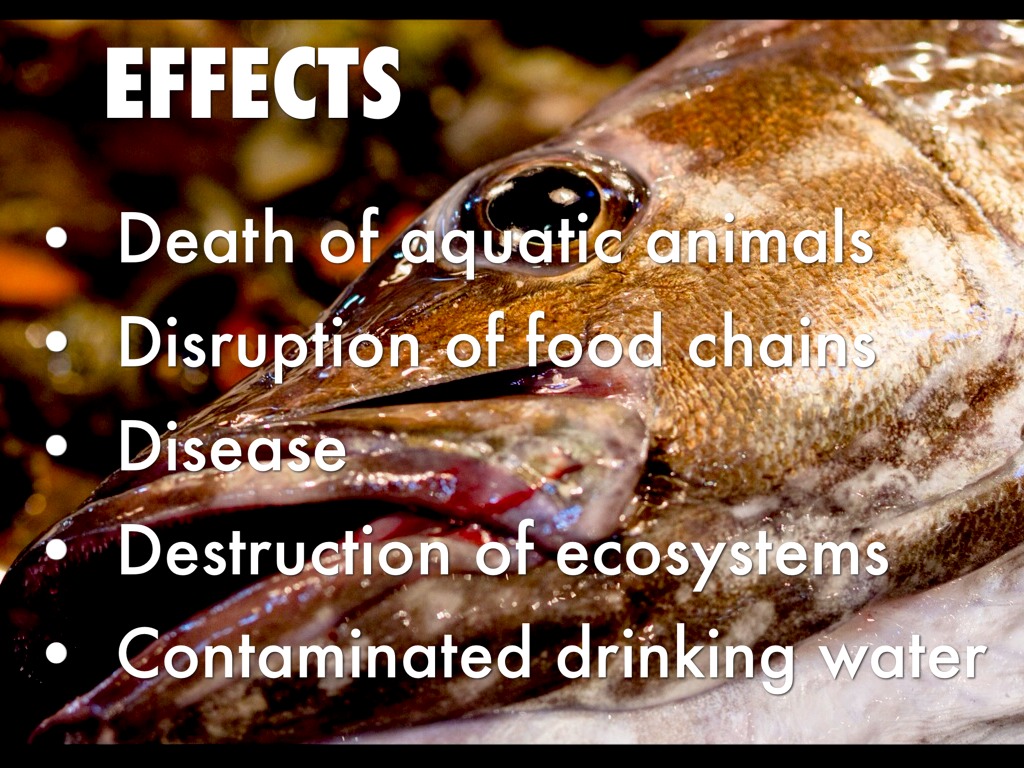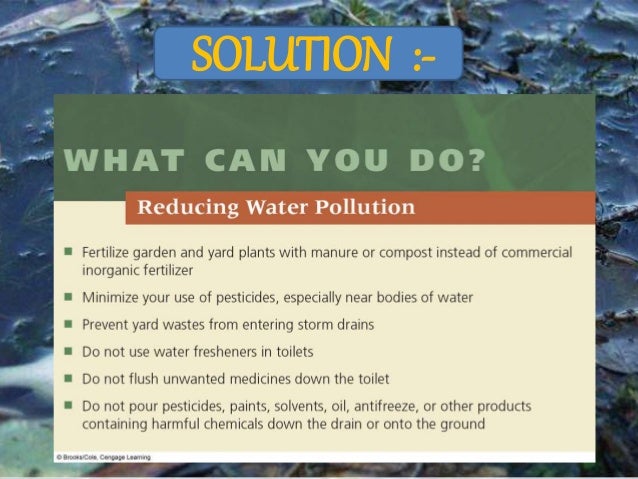About Water Pollution
Water pollution is the contamination of water bodies (e.g., lakes, rivers, oceans) usually due to human activities. It poses a significant threat to the environment and human health. "Waters, once pristine, now bear the scars, Pollution's grip stretches, reaching far. Oceans, once teeming with life's grand show, Now bear the weight of our heedless throw. In rivers and lakes, the debris finds a home, A toxic legacy where creatures once roamed. Chemicals seep into nature's pure flow, Tainting the essence of what used to glow. Oil spills stain the seas, a tragic sight, An ecosystem's balance thrown into plight. Microplastics, unseen yet everywhere, Choke the very breath of creatures out there. Water, once life's cradle, now stands in pain, Its crystal purity lost in a polluted chain. The cycle of pollution, a global woe, Calls for urgent action, a debt we owe. The silent suffering of this vital resource, Warns of the consequences in due course. Water pollution's footprint, a haunting trace, Threatening the very essence of nature's grace."

Causes of Water Pollution
Water pollution is the contamination of water bodies such as rivers, lakes, oceans,
groundwater, and
aquifers with harmful substances or energy. It can be caused by various contaminants,
including
toxic
waste, petroleum, and disease-causing microorganisms. Here are some of the causes of water
pollution:
1. Industries waste: Factories and industries release a large
amount of
waste into
water bodies, including chemicals, heavy metals, and other toxic substances.
2. Agricultural waste: Pesticides, fertilizers, and other chemicals used in
agriculture can
seep
into water bodies and cause pollution .
3. Sewage and wastewater: Improper disposal of sewage and wastewater can lead to
water
pollution.
4. Oil spills: Accidental oil spills from ships or offshore drilling can cause
severe
water
pollution.
5. Plastic waste: Plastic waste is a significant contributor to water pollution,
especially
in
oceans and other water bodies.
6. Mining activities: Mining activities can release toxic substances such as
mercury
and lead
into water bodies.
7. Radioactive waste: Nuclear power plants and other industries that use
radioactive
materials
can release radioactive waste into water bodies.
8. Global warming: Climate change can cause water pollution by increasing the
temperature of
water bodies and making them more susceptible to pollution.
9. Acid rain: Acid rain can cause water pollution by increasing the acidity of
water
bodies
and
making them more toxic.
10. Urbanization: Rapid urbanization can lead to water pollution due to increased
runoff from
roads, buildings, and other structures.
11. Deforestation: Deforestation can cause water pollution by increasing soil
erosion
and
sedimentation in water bodies.
12. Landfills: Landfills can release toxic substances into groundwater and other
water
bodies.
13. Leaking underground storage tanks: Leaking underground storage tanks can
release
toxic
substances into groundwater and other water bodies.
14. Illegal dumping: Illegal dumping of waste into water bodies can cause severe
water
pollution.
15. Invasive species: Invasive species can cause water pollution by disrupting the
natural
balance of ecosystems.
16. Overfishing: Overfishing can cause water pollution by reducing the number of
fish
that
help
keep water bodies clean.
17. Boating: Boating can cause water pollution by releasing fuel and other
chemicals
into
water
bodies.
18. Construction activities: Construction activities can cause water pollution by
increasing
sedimentation and runoff into water bodies.
19. Poorly maintained septic systems: Poorly maintained septic systems can release
harmful
bacteria and other pathogens into water bodies.
20. Lack of environmental regulations: The lack of environmental regulations can
lead
to
water
pollution by allowing industries and other entities to release harmful substances into water
bodies
without consequences.

Effects of Water Pollution
Water pollution is the introduction of foreign pollutants into a body of water, which can cause illness or even death in the organisms that rely on the waterbody. The effects of water pollution are typically severe, as water is able to dissolve many substances. These substances easily enter the human body if the tainted water is consumed. Water pollution can drastically affect human health, and in 2015 alone, waterborne illnesses caused 1.8 million deaths worldwide. It can also cause contamination of drinking water, thereby contributing to waterborne illnesses. Besides affecting human health, the effects of water pollution can also impact biodiversity. For instance, when large quantities of nutrients are introduced into a waterbody, a phenomenon called eutrophication happens. This can result in the depletion of dissolved oxygen in the affected water body, essentially killing fish and other aquatic organisms. Water pollution can also leach chemicals into the soil that may impact the growth of plants or other food crops. In short, water pollution can bring about disastrous consequences.

Water pollution poses severe threats to both the environment and human health. Contaminants, such as chemicals, toxins, and waste, infiltrate water bodies, disrupting ecosystems and endangering aquatic life. This pollution affects drinking water sources, leading to serious health complications for humans, from gastrointestinal issues to long-term diseases. The imbalance caused by pollution can devastate aquatic habitats, leading to a decline in biodiversity and disrupting food chains. Additionally, the presence of pollutants in water sources can result in the bioaccumulation of toxins in the bodies of aquatic organisms, which can eventually impact human health when consuming contaminated fish or other marine life. Addressing water pollution is crucial to safeguard both the environment and our own well-being.
Solutions to Water Pollution
Addressing water pollution requires a multi-pronged approach, including stricter regulations, sustainable agricultural practices, better wastewater treatment, and public awareness campaigns. Water pollution is a serious issue that can have disastrous consequences. Fortunately, there are many solutions to reduce water pollution. The best solution is to stop it at the source. This can be achieved through wastewater treatment, stormwater management, and water conservation. Reducing plastic waste is another important solution, as more than 8 tonnes of plastic enters our ocean every year. Water conservation is also crucial, as it helps to reduce the amount of water that needs to be treated and reduces the amount of pollution that enters our waterways. Other solutions include using water-efficient toilets, septic tanks, and not using the toilet as a trash bin. Stormwater management, green agriculture, and wetlands are also effective solutions. It is important to understand the causes of water pollution to find solutions to the problem. Causes of water pollution can be anything from overdevelopment to inappropriate sewage disposal. Once the cause of water pollution is identified, solutions can be made to combat the issue.

Use natural cleaning products instead of toxic ones in your home.
Dispose of waste properly. Never pour something that isn't biodegradable down the drain.
Don't flush medication.
Use the minimum amount of detergent and/or bleach when you are washing clothes or dishes.
Use only
phosphate-free soaps and detergents.
Minimize the use of pesticides, herbicides, and fertilizers.
Get Involved
Water pollution can arise from various sources and human activities. Some common ways people
contribute
to water pollution include:
1. Industrial Waste: Industries often discharge untreated or partially treated
waste
into
water
bodies, containing chemicals, heavy metals, and toxins.
2. Agricultural Runoff: Pesticides, fertilizers, and animal waste from farms can
seep
into
waterways, causing pollution.
3. Improper Waste Disposal: Improperly disposed-of household waste, including
plastics,
chemicals, and non-biodegradable materials, can end up in water bodies through runoff or
direct
disposal.
4. Sewage and Wastewater: Insufficiently treated sewage and wastewater from cities
and towns
can
be released into rivers and oceans, carrying pathogens and other contaminants.
5. Oil Spills: Accidental or deliberate discharge of oil from ships, pipelines, or
other
sources
can have catastrophic effects on water quality.
Getting involved in addressing water pollution can take several forms:
-
-
-
-
-
Whether through personal choices or community involvement, every effort to reduce water
pollution
counts
and contributes to a healthier environment.


Additional Resources
Websites and Online Resources:
Environmental Protection Agency (EPA): The EPA website offers extensive
information
on water
pollution, regulations, and ways to address it.
World Health Organization (WHO): Provides reports, data, and publications on water
quality
and
pollution globally.
National Geographic: Offers articles, videos, and infographics on water pollution
and
its
impact
on ecosystems.
UN Water: Provides reports and resources on global water issues, including
pollution.
Water.org: Focuses on the global water crisis, including pollution and solutions.
Government Reports and Databases:
USGS (United States Geological Survey): Provides data, maps, and research on water
resources
and
quality
in the United States.
European Environment Agency: Offers reports and data on water quality and
pollution
in
Europe.
Contact Us
If you have questions or would like to get in touch, please contact us at contact@waterpollutionawareness.org.
Contact Us